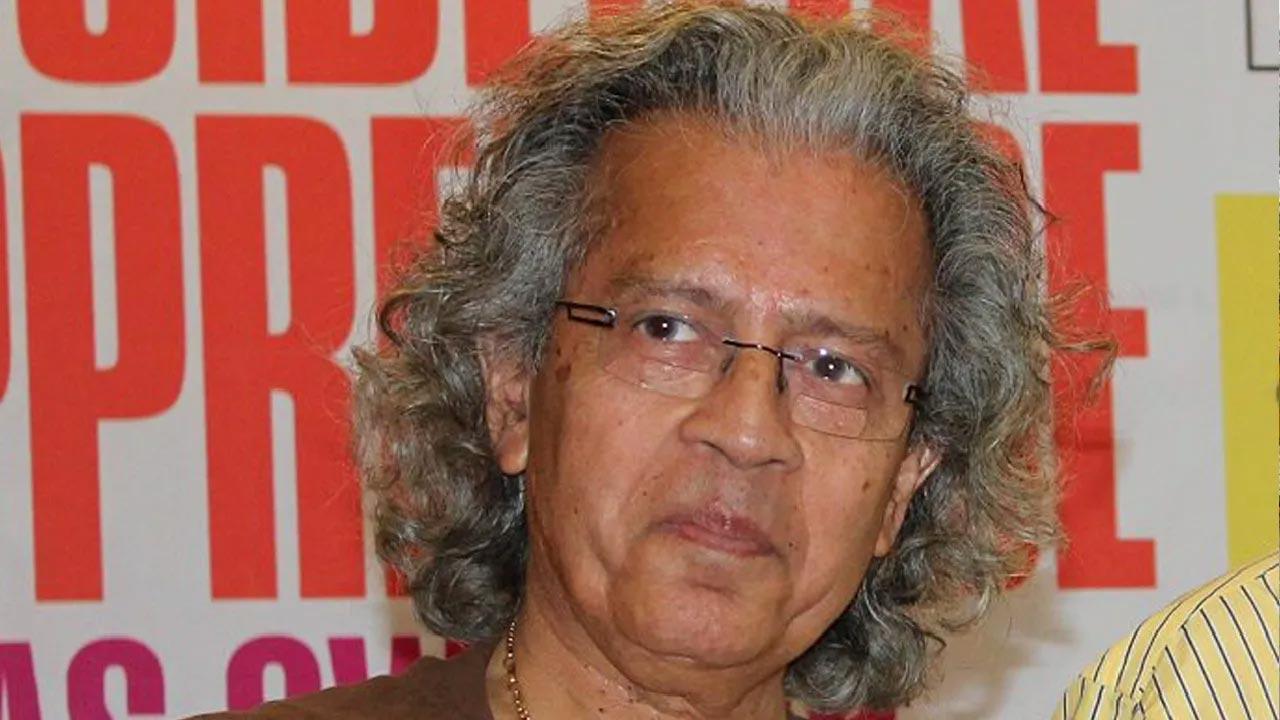Former editor of mid-day, Ayaz Memon, remembers Anil Dharker as a sports buff who not only included features in the paper, but made sports front page news

Anil Dharker. Pic/mid-day file pic
I knew Anil Dharker for over 30 years. He came in as editor of mid-day in 1988 when I was editor of Sportsweek magazine and sports editor of mid-day. We have had a long association. He was also the executive editor of The Independent, where I was sports editor. He was a big departure from the stereotypical editor, even in the way he dressed: in kurta and pyjamas, and this was back in 1988.
ADVERTISEMENT
An engineer-turned-journalist
He had an interesting background as he was an engineer by qualification, whose passion for writing and culture brought him into journalism. He edited Debonair for a while, which was more of a men’s magazine, but he brought in more delectable writing. He took over from Vinod Mehta, who went over to the Sunday Observer. And it was quite a surprise for the newsroom to see Anil with his long curly hair and kurta and pyjamas or kurta and churidaar. There are two types of editors - one who rules by farmaan and the other consensual. He would take a consensus opinion and move along.
He had a soft side to him. Newspapers would thrive on political and business news, but he would also include features into the paper including Sunday mid-day. He brought in a whole team of feature writers in Sunday mid-day at that point in time. He was, much to the surprise of everybody, a complete sports buff and an active sports person himself. It didn’t seem like it when you saw him. But he would play tennis every morning at the Bombay Gymkhana unfailingly, till ill health struck in the last seven to eight years with a heart issue.
He was a man of very refined taste, fine use of words and very evocative. As a journalist he was a free thinker and a complete democrat. He believed fiercely in democracy. That apart, he was a very fair person who didn’t separate juniors from seniors. So in that way, he had a flat newsroom.
You could go up to him and get anything addressed. He wrote on a variety of issues and subjects. So, while he was not a political correspondent, he would write on politics, sports, food and so on.
But his lasting legacy was Tata Litlive which he started at a time when most people give up and are happy to lead a retired life: That’s when he got into starting this festival, in 2010 or 2011. And he made it into a cult event in the country. It was his personality and persona that helped him get the best writers and subjects to come and speak, release their books, debate and speak to audiences here. He made a lasting contribution to journalism.
‘He had a very fine pen’
Quintessentially a Mumbaikar, he was very cosmopolitan, very secular, very democratic, and never minced words. He was not fire and brimstone, but persuasive and logical in his comment pieces. He had a very fine pen. His prose told us about his personality and the kind of man he was. He did not create a ruckus with his pen. He was a very warm and compassionate man.
There are so many memories of Anil. He was the first person to tell me in mid-day that we want to make sports front page news. When I was in the West Indies, covering the 1989 Indian cricket tour, I got an interview with Dr Jamie Astaphan, who was Ben Johnson’s advisor and coach. He gave an interview about how Johnson had taken banned substances to train. Subsequently, Johnson lost his Seoul Olympics gold medal. Sure enough, Anil carried the story on page 1 the next day.
Sports books were released at Litlive where sportspersons and sports writers exhibited their books but he wanted a chapter on sports to be initiated at Litlive.
One of the things we kept talking about was how to take the agenda or the gospel of sports across to everybody in the country. We thought one of the ways to do that was to have read aloud sessions on sports, sports books in schools and colleges so that people, kids come to know what it means to play and be good at sports. That is one of the things that we have been working on. And unfortunately, now that chapter has ended. But I think he was a strong influence in the media and cultural facet of Mumbai. He was in that quintessentially Mumbaikar category.
He was a boy from Baroda who studied in England. He came back and made Mumbai his home, absorbed the best of Mumbai and gave the city his best. Or Bombay as that’s when they would call it Bombay.
As told to Sundari Iyer Ayaz Memon was editor of mid-day from 1993 to 2000
 Subscribe today by clicking the link and stay updated with the latest news!" Click here!
Subscribe today by clicking the link and stay updated with the latest news!" Click here!






